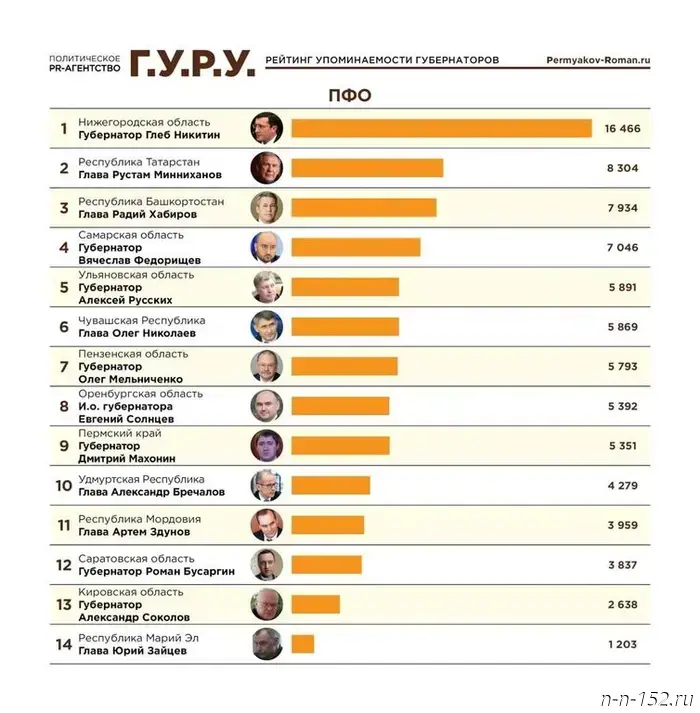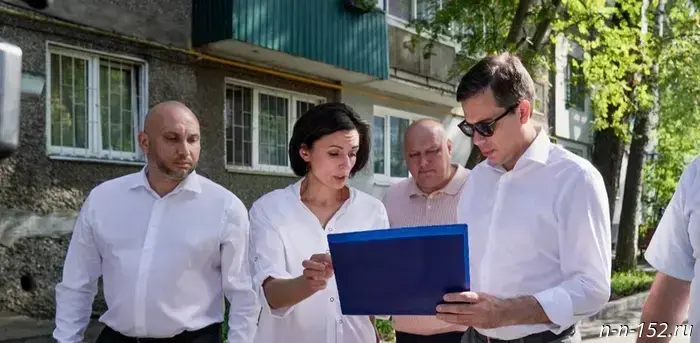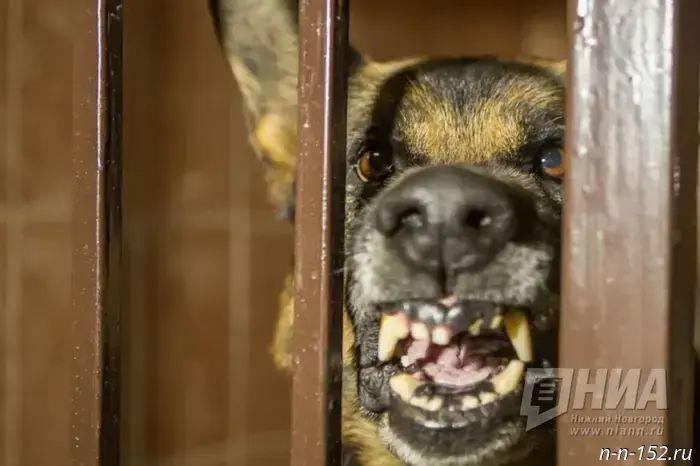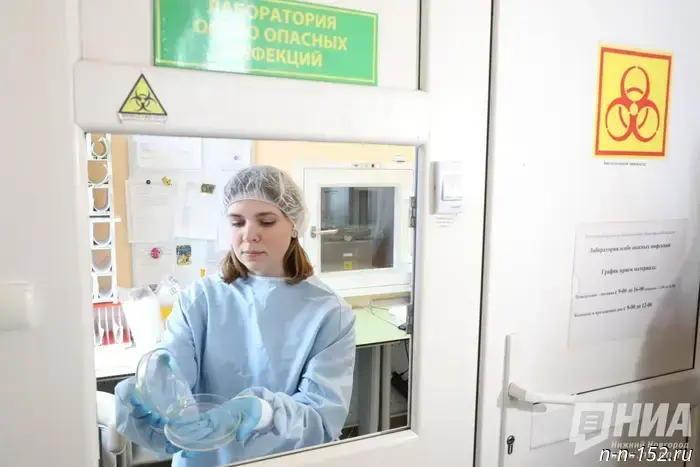In Nizhny Novgorod, forecasts and challenges of the 2025 election campaign were discussed.
On July 17, within the framework of the work of the Public Headquarters of the Nizhny Novgorod Region for election observation at the House of National Unity, a roundtable of electoral experts was held on the topic "Electoral Campaign 2025 in Russia and the Nizhny Novgorod Region." The main discussion focused on scenarios, forecasts, and challenges of the current election campaign. This was reported by the Public Chamber of the Nizhny Novgorod Region. The event was moderated by Evgeny Semyonov, deputy chairman of the Public Chamber of the Nizhny Novgorod Region and head of the Nizhny Novgorod branch of FO.RGO, who noted that the launched electoral campaign is significant due to its close connection with the large electoral cycle of 2026: “The upcoming elections of various levels serve as a major rehearsal for the extensive electoral campaign of 2026 for the Russian State Duma. During this campaign, methods and technologies to be used next year will be tested. And the results of the 2025 single voting day will largely determine the political landscape ahead of the most important parliamentary elections.” Electoral experts forecast that in the current electoral campaign, including in the Nizhny Novgorod region, there should be no significant electoral activity from the political opposition, and electoral processes will generally be built on principles of trust in the federal government and support for the country's course. “The consolidation of society around the state flag and the President will be a leading factor in the upcoming elections,” believes Alexander Rezontov, editor-in-chief of the television editorial board of NN-TV and member of the Russian Television Academy. At the same time, as noted by Andrey Samsonov, senior researcher at the Privolzhsk branch of the Research Institute of Political and Social Studies (NII IPSU), there is an intensification of competition for second place in the overall party lineup. “Public trust is directed toward United Russia. The second place will be contested by LDPR and CPRF. It is difficult to say who will win. The strategies of the parties are different. In my view, after the death of Vladimir Zhirinovsky, the LDPR successfully overcame the crisis. Meanwhile, the 'Fair Russia' party is experiencing a certain crisis,” the expert expressed during the discussion. According to political scientist, Ph.D., professor at the Nizhny Novgorod branch of RANEPA Andrey Dahin, besides the direct political activity of the parties themselves, local agenda may negatively influence the election results, but in the Nizhny Novgorod region, its impact on electoral processes is not very high. The expert community identifies three groups of challenges facing the current electoral campaign that could influence the election outcomes and the success of each political force. The first group is the uncertainty of the agenda. Experts believe that the success of political parties in the next 3-5 years will depend directly on their ability to respond flexibly and promptly to changing circumstances and adapt their programs to societal demands. The second group is the shift of generations within parties. Over the next five years, “veterans” who began their political careers in the late 1990s and early 2000s will gradually leave electoral and political processes, making way for young politicians. Accordingly, the most urgent task for the domestic political system is to maintain the continuity of successfully established political institutions and to renew party compositions. An important role in this process will be played by the course of updating elites, announced by Russian President Vladimir Putin, linked to the incorporation of participants in the special military operation (SMO) into the power system. The third group concerns the development of new information technologies, including artificial intelligence, in political communication, which could lead to the use of information-psychological warfare methods in election campaigns to destabilize the Russian electoral system. Alexander Rezontov, with over 25 years of experience monitoring electoral processes, sees a particular threat in the possible influence of deepfakes on election results. At the same time, he emphasized the importance of public oversight during the upcoming election cycle. “Our task is to conduct the process as honestly, cleanly, and transparently as possible so that there are no questions,” said Rezontov. Summing up the discussion, Evgeny Semyonov concluded: “Under the conditions of a large-scale geopolitical challenge faced by our country, Russian society demonstrates consolidation around the idea of safeguarding national sovereignty, which is the leading factor influencing the course and outcomes of the electoral campaign.”
Другие Новости Нижнего (Н-Н-152)
 Gleb Nikitin ranked in the top 5 governors on Telegram based on June's results.
Source: PRESS SERVICE OF THE GOVERNOR AND THE GOVERNMENT OF NIZHNY NOVGOROD REGION
The analytical center "G.U.R.U." in collaboration with the information telegram agency "TeleStream" presented the latest edition of the research "Telegram Index. 18.07.2025. Newspaper Rural Tribune. Nizhny Novgorod Region. Pilna."
Caution, ticks!
The season is in full swing. We're sharing prevention tips.
How to protect yourself from ticks? 18.07.2025. Ardatovsky Municipal District. Nizhny Novgorod Region. Ardatov.
Gleb Nikitin ranked in the top 5 governors on Telegram based on June's results.
Source: PRESS SERVICE OF THE GOVERNOR AND THE GOVERNMENT OF NIZHNY NOVGOROD REGION
The analytical center "G.U.R.U." in collaboration with the information telegram agency "TeleStream" presented the latest edition of the research "Telegram Index. 18.07.2025. Newspaper Rural Tribune. Nizhny Novgorod Region. Pilna."
Caution, ticks!
The season is in full swing. We're sharing prevention tips.
How to protect yourself from ticks? 18.07.2025. Ardatovsky Municipal District. Nizhny Novgorod Region. Ardatov.
 Yuriy Shalabaev: We approach courtyard repairs comprehensively
The mayor of Nizhny Novgorod, Yuri Shalabaev, assessed the progress of the repair campaign for residential territories, which will be comprehensively improved this year. 18.07.2025. Administration of Nizhny Novgorod. Nizhny Novgorod Region. Nizhny Novgorod.
Yuriy Shalabaev: We approach courtyard repairs comprehensively
The mayor of Nizhny Novgorod, Yuri Shalabaev, assessed the progress of the repair campaign for residential territories, which will be comprehensively improved this year. 18.07.2025. Administration of Nizhny Novgorod. Nizhny Novgorod Region. Nizhny Novgorod.
 Owners of the dog that bit a child in Gorodets have been found.
Owners of the dog that bit a child in Gorodets have been found.
 The number of tick bite incidents in the Nizhny Novgorod region increased by 9%.
Four families from Nizhny Novgorod received nearly 100 million rubles for farm development.
Funds will be allocated for the construction of new facilities and the purchase of equipment.
Four farmers from Nizhny Novgorod received grants totaling 99.5 million rubles for the development of family farms. July 18, 2025. Lukoyanovskaya Pravda newspaper. Nizhny Novgorod region. Lukoyanov.
The number of tick bite incidents in the Nizhny Novgorod region increased by 9%.
Four families from Nizhny Novgorod received nearly 100 million rubles for farm development.
Funds will be allocated for the construction of new facilities and the purchase of equipment.
Four farmers from Nizhny Novgorod received grants totaling 99.5 million rubles for the development of family farms. July 18, 2025. Lukoyanovskaya Pravda newspaper. Nizhny Novgorod region. Lukoyanov.
In Nizhny Novgorod, forecasts and challenges of the 2025 election campaign were discussed.
On July 17, as part of the work of the Public Headquarters of the Nizhny Novgorod Region for Election Monitoring at the House of People's Unity, an electoral experts' roundtable was held on the topic "Electoral Campaign 2025 in R 18.07.2025. Time N. Nizhny Novgorod Region. Nizhny Novgorod."
